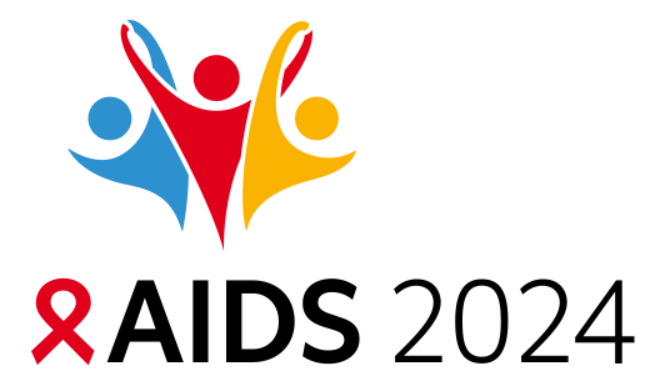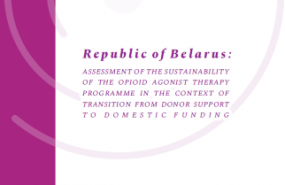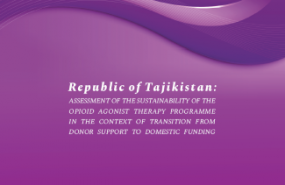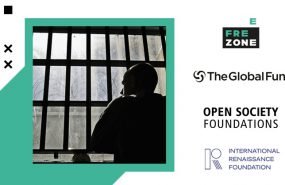Global Fund’s new HIV and TB multicountry grants in EECA begin implementation
- 28.02.2019 16:49
- Post Views: 1,156
Of these, in December 2018, the Board approved two grants to Eastern Europe and Central Asia (EECA): one grant in the amount of $13 million for the sustainability of HIV services for key populations, and a second grant, in the amount of $5 million, to improve the quality of care and prevention of drug-resistant TB in the region. The Principal Recipient (and lead applicant) for the HIV multicountry grant is Ukraine’s Alliance for Public Health, and the PR for the TB grant is Moldova’s Center for Health Policies and Studies (see below for short descriptions of each of these grants).
EECA civil society and applicants for multicountry HIV and TB grants have expressed concern, however, regarding the effectiveness of the application process prescribed by the Global Fund for these multicountry grants. In the previous application period (2014 to 2016), the Global Fund invited pre-identified applicants from the EECA region to develop funding requests; this time, that approach was replaced with a competitive application process, using requests for proposals issued in December 2017 and January 2018, with a submission deadline of 30 April 2018.
Vitaly Djuma, Executive Director of the Eurasian Coalition on Male Health, said: “The way the Global Fund organized the application process created an atmosphere of unnecessary competition and animosity between regional civil society players.” Djuma also expressed intense dissatisfaction with the Global Fund’s decision to “support only one grant to cover such a huge region as EECA,” comprising “vastly different health and political systems, society and community development, [and] HIV epidemic trends.”
Anna Dovbakh, the Executive Director of the Eurasian Harm Reduction Association, emphasized that that development of proposals for Global Fund grants is a time- and resource-consuming process. “NGOs, even the regional ones, have very limited funding available to support such a process,” she said. “Four multicountry proposals were developed and submitted from the EECA region and only one was supported. This means that a lot of sacred resources being spent on the development of other proposals were just wasted due to the competitive application process being proposed by the Global Fund this time.”
Further, in order to make the tendering process transparent, the Global Fund Secretariat restricted its communication with applicants to the specifically designated formal channel, which left applicants frustrated at their limited ability, they reported, to consult with Secretariat representatives during the application development process. In addition, for the development of the multicountry HIV proposals, applicants were unable to request the technical support of the UNAIDS regional office because UNAIDS had been involved in the development of the terms of reference for multicountry HIV applications in the EECA.
The Global Fund’s Head of Communications Seth Faison responded to these comments in an email to the GFO, saying, “The Global Fund believes that a transparent and competitive application process is effective and appropriate in this region, where we have to seek maximum impact with limited funding. We recognize that the circumstances may create some challenges, and we are committed to working with partners to resolve problems where possible.”
Multicountry grant summaries
HIV multicountry grant for sustainability of services for key populations
The project “Sustainability of services for key populations in Eastern Europe and Central Asia” was developed and submitted by consortium of organizations from the EECA region, led by the Alliance for Public Health, and co-applicants All-Ukrainian Network of PLWH 100% Life, Central Asian PLWHA Association and Eurasian Key Populations Health Network (EKHN), subsequently selected as regional Sub-Recipients. The regional networks TB People, ECOM, ENPUD and EHRA will also be involved in the implementation of project activities, which began in January 2019 and will continue until December 2021.
The initial application was intended to cover nine EECA countries with a total budget of $10.5 million for three years (2019-2021). In September 2018, the Global Fund for additional funding for this project, worth $2.5 million. This additional request included critical components to ensure the sustainability of services for key populations in five more countries in south-eastern Europe. As a result, the project’s activities will cover 14 EECA countries: Belarus, Georgia, Moldova, Kazakhstan, Kyrgyzstan, Russian Federation, Tajikistan, Uzbekistan, Ukraine as well as Bosnia and Herzegovina, Macedonia, Montenegro, Romania and Serbia.
Andriy Klepikov, the Executive Director of the Alliance for Public Health, called this “an unprecedented project for the region, [in its] scope, targets and partnerships”.
Tuberculosis multicountry grant to improve ‘people-centred’ focus
Tuberculosis Regional Eastern European and Central Asian Project (TB-REP 2.0) is a multi-partner program with the aim to foster timely TB case detection and improved treatment outcomes in patients with special emphasis on drug-resistant TB, in eleven EECA high TB burden countries: Armenia, Azerbaijan, Belarus, Georgia, Kazakhstan, Kyrgyzstan, Moldova, Tajikistan, Turkmenistan, Uzbekistan and Ukraine.
Partners involved in this project’s implementation are:
– Center for Health Policies and Studies (PAS Center) is the Principal Recipient, and will lead overall coordination and management of the program;
– WHO Regional Office for Europe is the lead technical agency providing guidance and necessary technical assistance
– TB Europe Coalition (TBEC), a regional network of NGOs responsible for strengthening advocacy and the operational role of civil society;
– TB People, a network of people with experience of TB, responsible for empowering and mobilizing the community of people affected by TB;
– Global TB Caucus (GTBC), a network of parliamentarians responsible for enhancing political support and cultivating interaction between decision-makers and civil society.
Svetlana Nicolaescu, the PAS Center’s Project Coordinator, said: “The underlying concept of the project is that the multicountry initiative will further push forward and consolidate efforts to improve the cascade of TB care: improving early detection and finding people with TB who are missed by national programs; reducing patient delays; ensuring universal access to rapid drug-susceptibility testing (DST), administration of correct treatment regimens based on the resistance profile, and improving treatment success rates through intensive patient support and follow-up. We will keep the focus on catalyzing health system transformation towards people-centredness in TB care,” she said.
The future of Global Fund multicountry grants
The Global Fund is currently reviewing its allocation methodology and catalytic funding scenarios for the 2020-2022 allocations. Decisions on any changes to allocation methodology and catalytic funding scenarios will be made at the Global Fund’s 41st Board Meeting, in Geneva from 14-16 May, 2019. At the time of this publication, the Strategy Committee is in the process of reviewing catalytic investments to date and identifying initial priorities for the 2020-2022 funding allocations. Any such revisions could affect the availability of funding for multicountry projects within the new allocation period, as could the results of the Global Fund’s Sixth Replenishment, in October 2019.
“Not achieving the Replenishment target would contribute to difficult conversations and decisions around Catalytic Funding at the Board level, including multicountry grants, which would be impacted with the reduction of funds to Catalytic Funding within the new allocation period”, said Rachel Ong, the focal point for the Communities Delegation to the Global Fund Board.
The latest research from Harm Reduction International (HRI) on funding for harm reduction in low- and middle-income countries (LMICs) showed just how important the Global Fund is in this space, where it accounts for two thirds of all international donor funding (see article in this GFO on HRI‘s call for sustained investment in harm reduction programs). “It is crucial that the Global Fund continues to prioritise and invest in multicountry projects, especially in EECA, where such projects make a great contribution to the dialogue and advocacy on harm reduction at the regional level,” said Catherine Cook, Sustainable Financing Lead in HRI.
Related News
Аssessment of the sustainability of the opioid agonist therapy programme in the context of transition from donor support to domestic funding in Belarus
This assessment has been initiated by the Eurasian Harm Reduction Association to assess the progress in reaching sustainability of the opioid agonist therapy (OAT) programme in the Republic of Belarus in the context of transition from donor support to domestic funding. The sustainability assessment of the OAT programme in the Republic of Belarus in 2020 was […] Read moreАssessment of the sustainability of the opioid agonist therapy programme in the context of transition from donor support to domestic funding in Tajikistan
This assessment has been initiated by the Eurasian Harm Reduction Association to assess the progress in reaching sustainability of the opioid agonist therapy (OAT) programme in the Republic of Tajikistan in the context of transition from donor support to domestic funding. Post Views: 783 Read moreOn-line conference ‘Prisons in COVID context: how community health systems work in EECA region’
We are pleased to invite you to the on-line conference ‘Prisons in COVID context: how community health systems work in EECA region’ that will take place on July 24th.The event is initiated by FREE ZONE and co-hosted by The Global Fund to Fight AIDS, Tuberculosis and Malaria and Open Society Foundations. Post Views: 1,089 Read moreEECA Region Space Schedule during AIDS 2024

Welcome to the EECA Region Space at the Global Village during AIDS 2024 Conference! Our dedicated space at the Global Village is designed to highlight the unique perspectives and experiences of the EECA region, fostering collaboration and inspiring action. Join us for a series of engaging sessions, workshops, and presentations that will explore a wide range of topics.
Services for migrants and refugees from Ukraine – HIV/TB care with a focus on key populations
Due to the increasing flows of refugees from Ukraine because of Russia’s invasion of Ukraine, the EECA Regional Platform created a spreadsheet to fill contacts details of face-to-face and online services for refugees and migrants (with a focus on HIV/TB care and key population groups).
Regional Platform – EECA
This web-resource is a part of new regional communication and coordination project “Regional Civil Society and Community Support, Coordination and Communication Platform - EECA”, implemented by Eurasian Harm Reduction Association (EHRA).
Tags
See also
-
EECA’s Regional Platform monthly Newsletter #8, October 2024 04.10.2024 11:59







